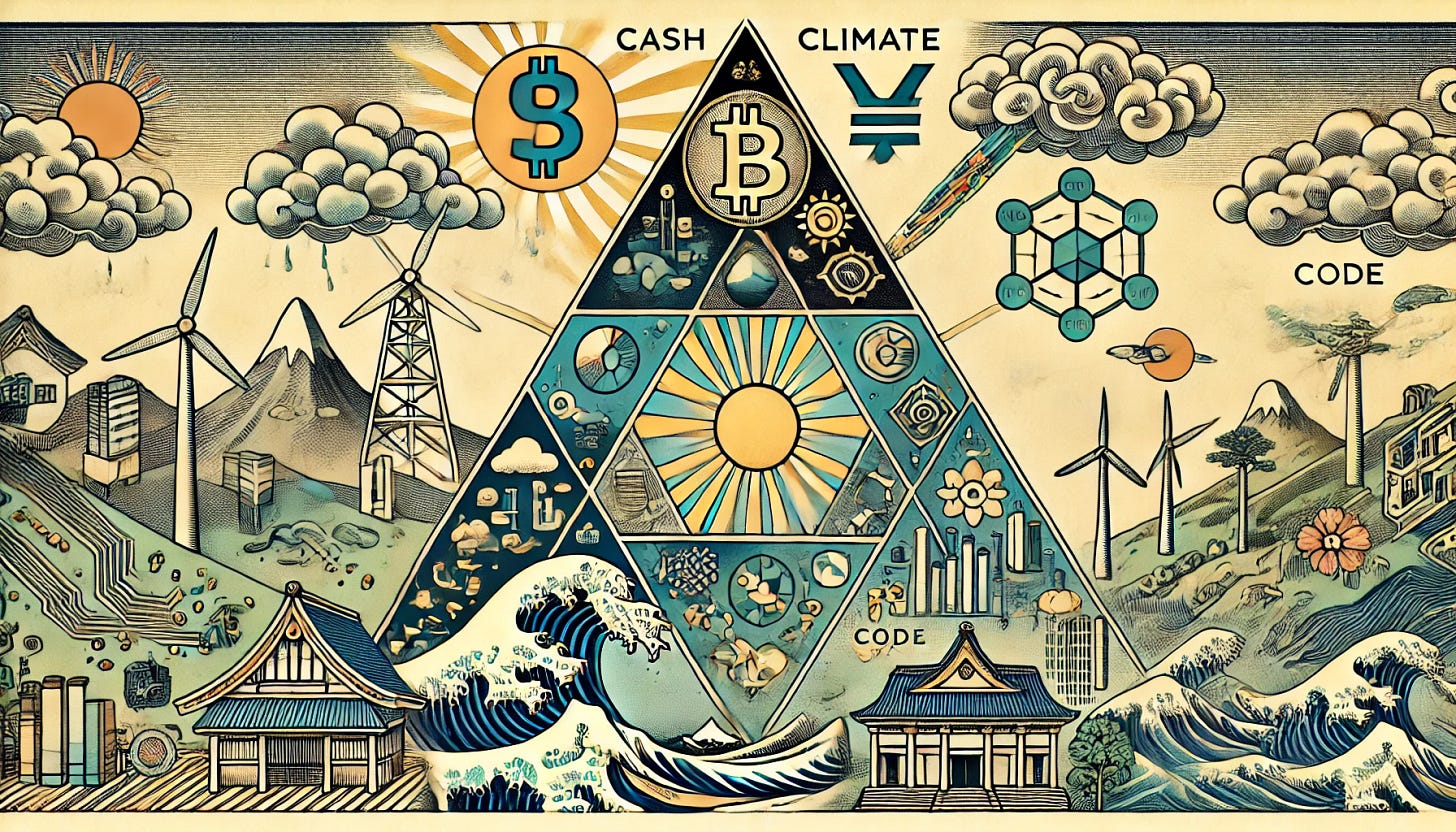thinkletter #59 - #polycrisis #cash climate code #food security #geoeconomics #protein prediction #sufficiency #wisdomcorner
November 14, 2024 - “Contentment comes not from abundance, but from sufficiency."
Boost your cognitive immunity!
Prosilience thinkletter #59
A bimonthly thinkletter to help you better understand and anticipate the global polycrisis, so you can adapt. Compiled by Christopher H. CORDEY, a futurist-maieutician, strategic facilitator, international speaker and founder of Futuratinow and prosilience. Partner at Yonders and board member at Swissfuture.
Mapping a world where cash, climate, and code define power
The world as we know it is bending under the weight of climate chaos, financial rivalry, and tech disruption. Economies flex muscles for influence, while the climate shakes up borders, crops, and coastlines alike. It’s a stage set for a new kind of power play, one where cash flow, climate action, and AI innovation mean as much—if not more—than missiles and walls. Welcome to the age of geoeconomics, where economies themselves are weapons, and “alliances” aren’t just about armies but about resources, resilience, and data.
Climate as the new battlefield
Imagine future wars fought not over ideology or territory but for a stable climate. Countries on the front lines of climate impact—like those facing rising seas or relentless drought—might find themselves in economic coalitions that shape global order as profoundly as military alliances once did. Could financial deals and climate pacts become the modern treaties that replace military ones?
What if owning “climate security”—a resilient food and water supply, flood defenses, energy independence—was more crucial than any weapon?
As global temperatures soar, nations already rich in climate stability will grow in influence, while those hit hardest might become the “climate dependents,” leaning on wealthier allies for survival.
The new arms race: code and biotech
Tech is rapidly advancing, and with it, a new frontier in competitive advantage. With Google DeepMind’s recent protein prediction breakthrough, we’re closer than ever to transforming medicine. But what happens if these innovations remain concentrated among wealthy nations?
What if predictive biotech leads to a biological “arms race” in healthcare?
Just as wealthier nations hold sway in climate resilience, they may soon dominate the landscape of life sciences, health, and biotechnology—turning scientific breakthroughs into tools of influence, creating a “digital divide” in healthcare that stretches far beyond income levels and into fundamental human well-being.
Geoeconomics: wealth as weaponry
Geoeconomics is redefining international relations, replacing military might with economic leverage. Imagine a world where the value of an alliance lies not in the number of troops a country can deploy but in its stockpiles of rare earth minerals, its agricultural resilience, or its financial clout. In Latin America, we already see a food paradox: nations rich in resources yet struggling with internal food insecurity. Addressing such disparities may require these countries to wield their resources strategically, trading agricultural wealth for infrastructural support or climate resilience aid. In Mongolia, mineral wealth has placed it at the heart of a strategic tug-of-war among neighboring powers, illustrating how natural assets can reframe global alliances and economic power.
This new era calls for a radical shift in strategy and foresight. Nations can no longer rely on traditional measures of power—GDP, military might, or territorial control alone—to secure their futures. Instead, climate stability, resource security, and technological equity are emerging as the cornerstones of resilience. In the age of geoeconomics, w(h)ealth, climate, and code dictate influence.
Our esteemed subscribers will access The Deeper Dive #3 - Beyond GDP : What if food, water, and energy become the new currency of power ? that explores the potential catalysts, implications, and trade-offs of a world where security resource provision redefines economic strength, questioning how such a shift might reshape global alliances and policies in the face of pressing environmental and societal challenges.
Enjoy the journey.
With best regards.
PS : not to be missed (click below)


